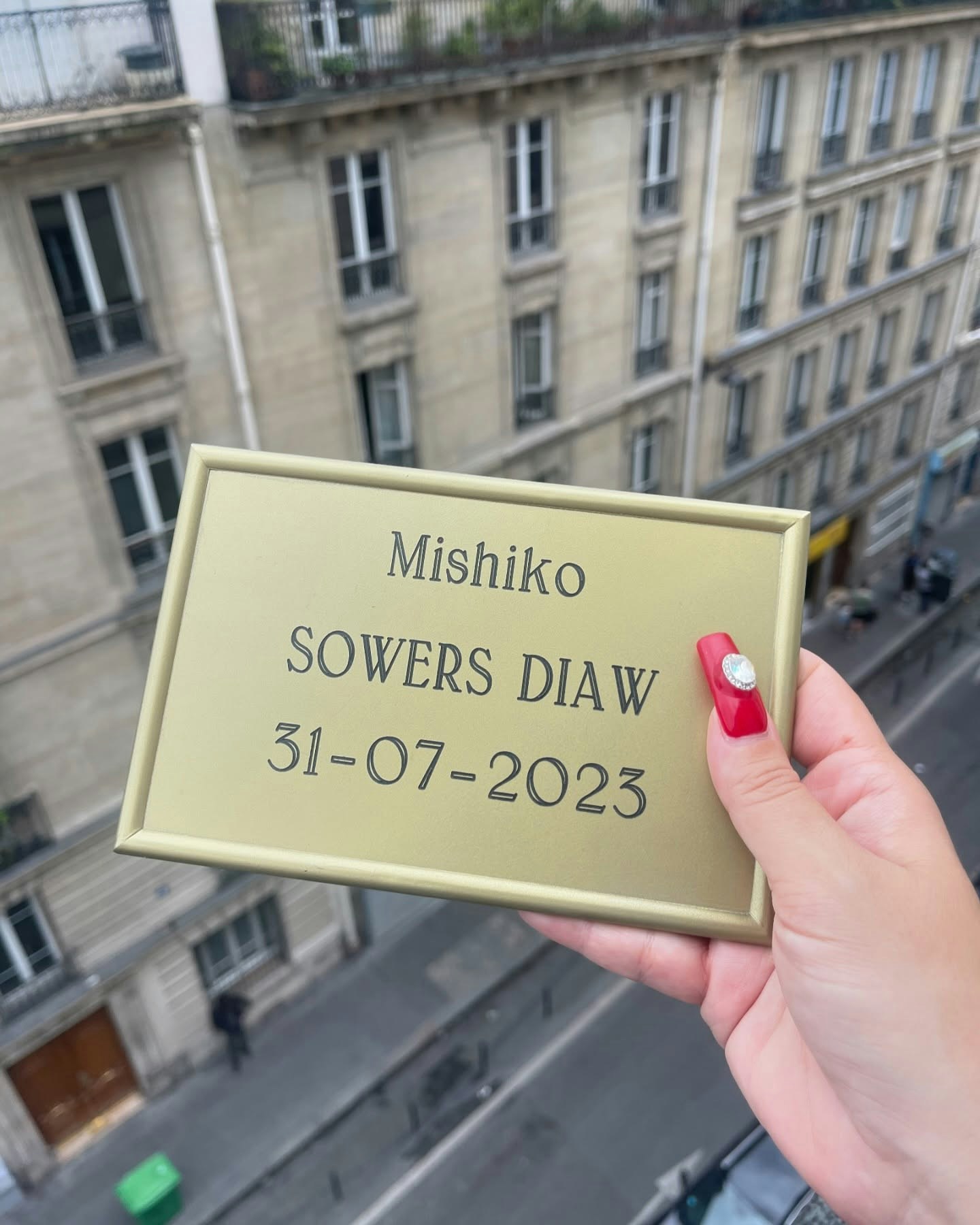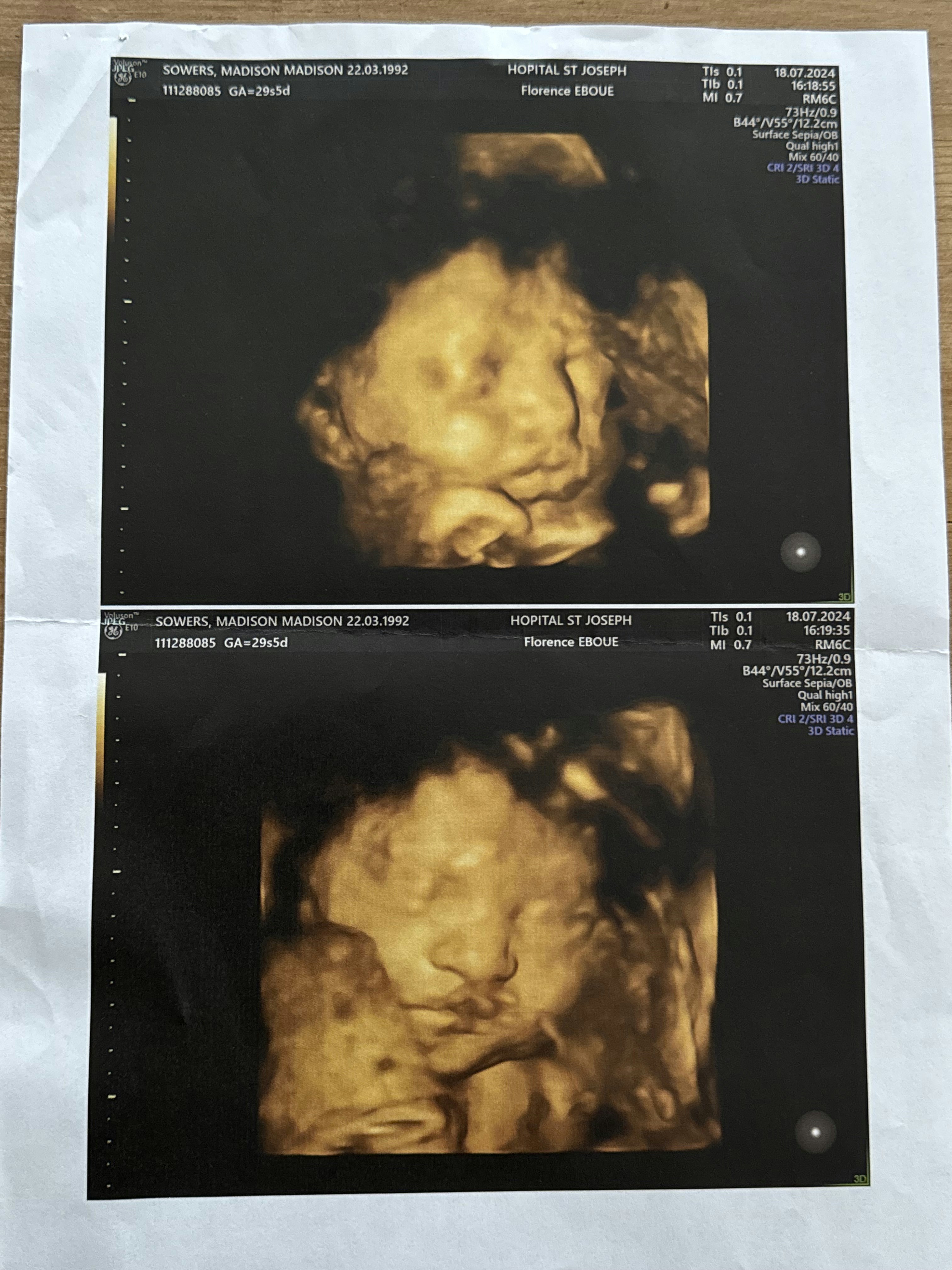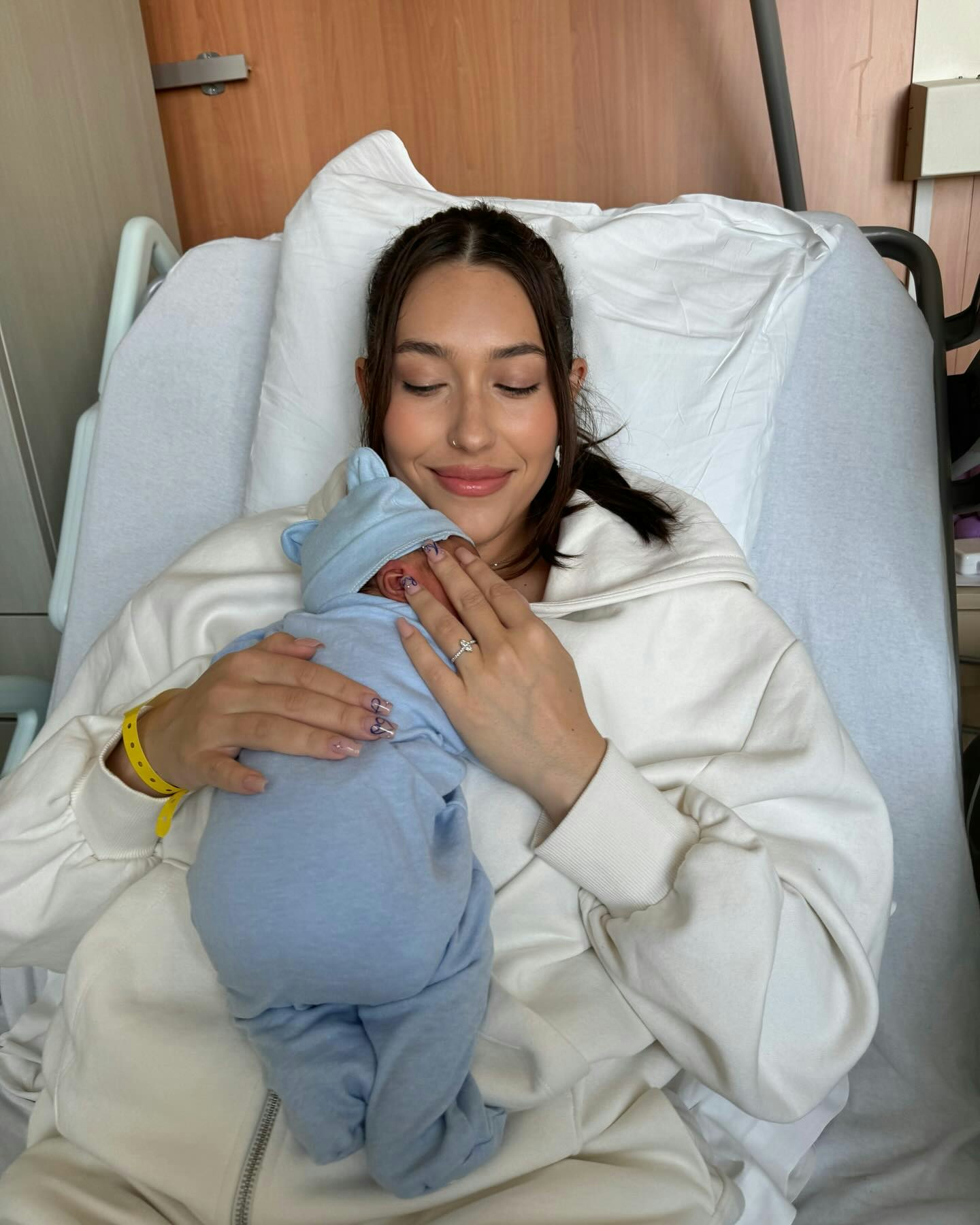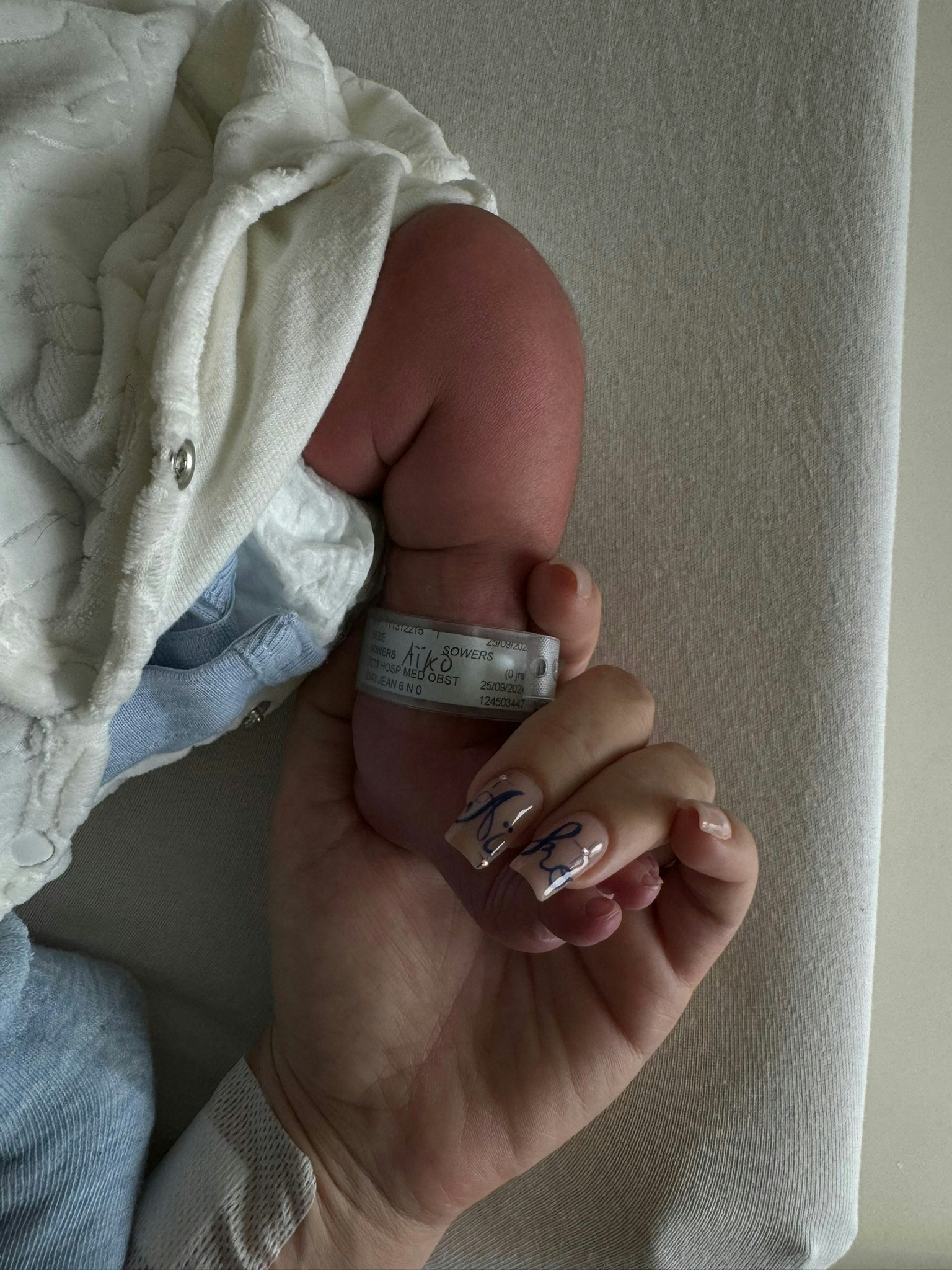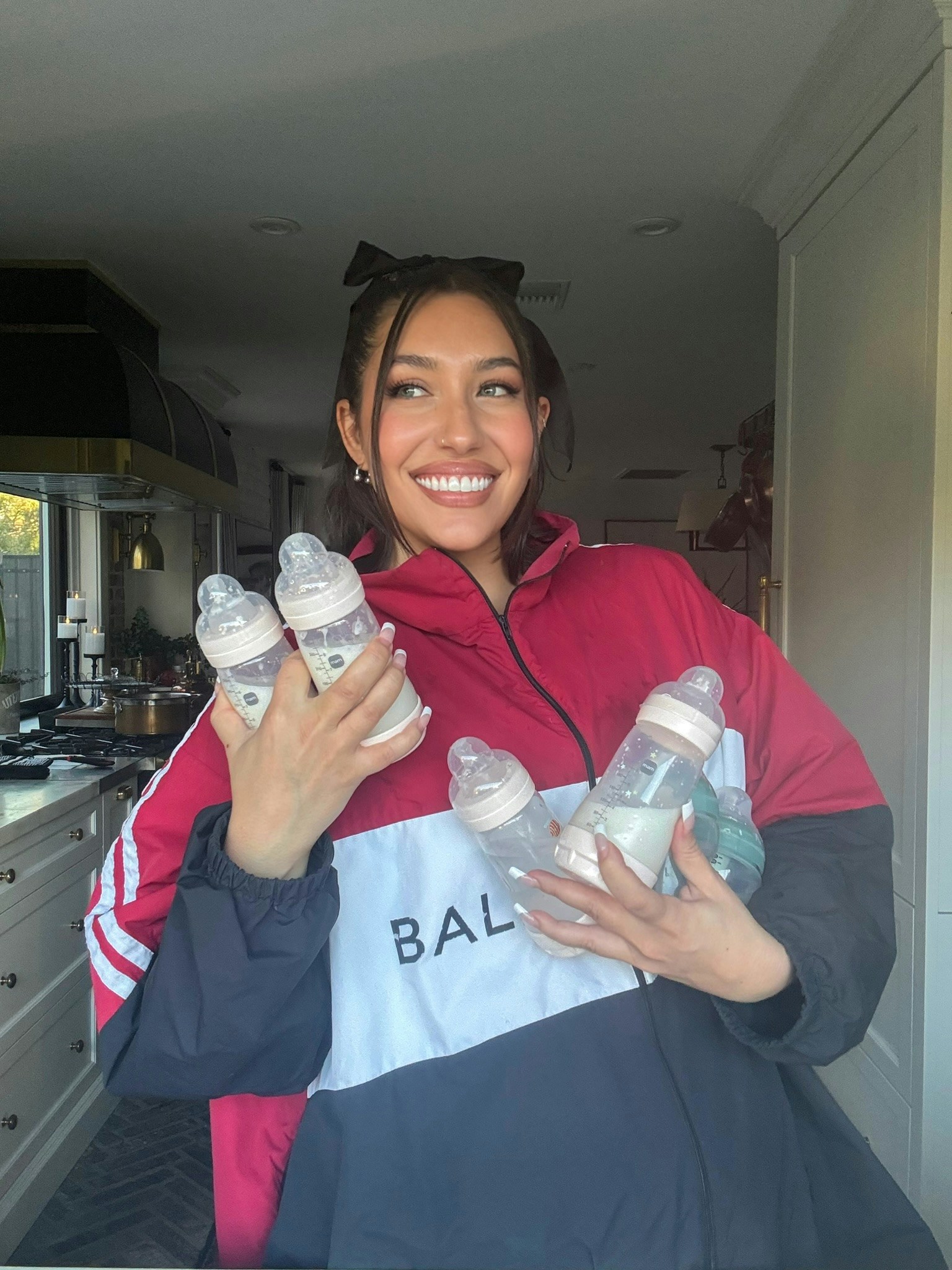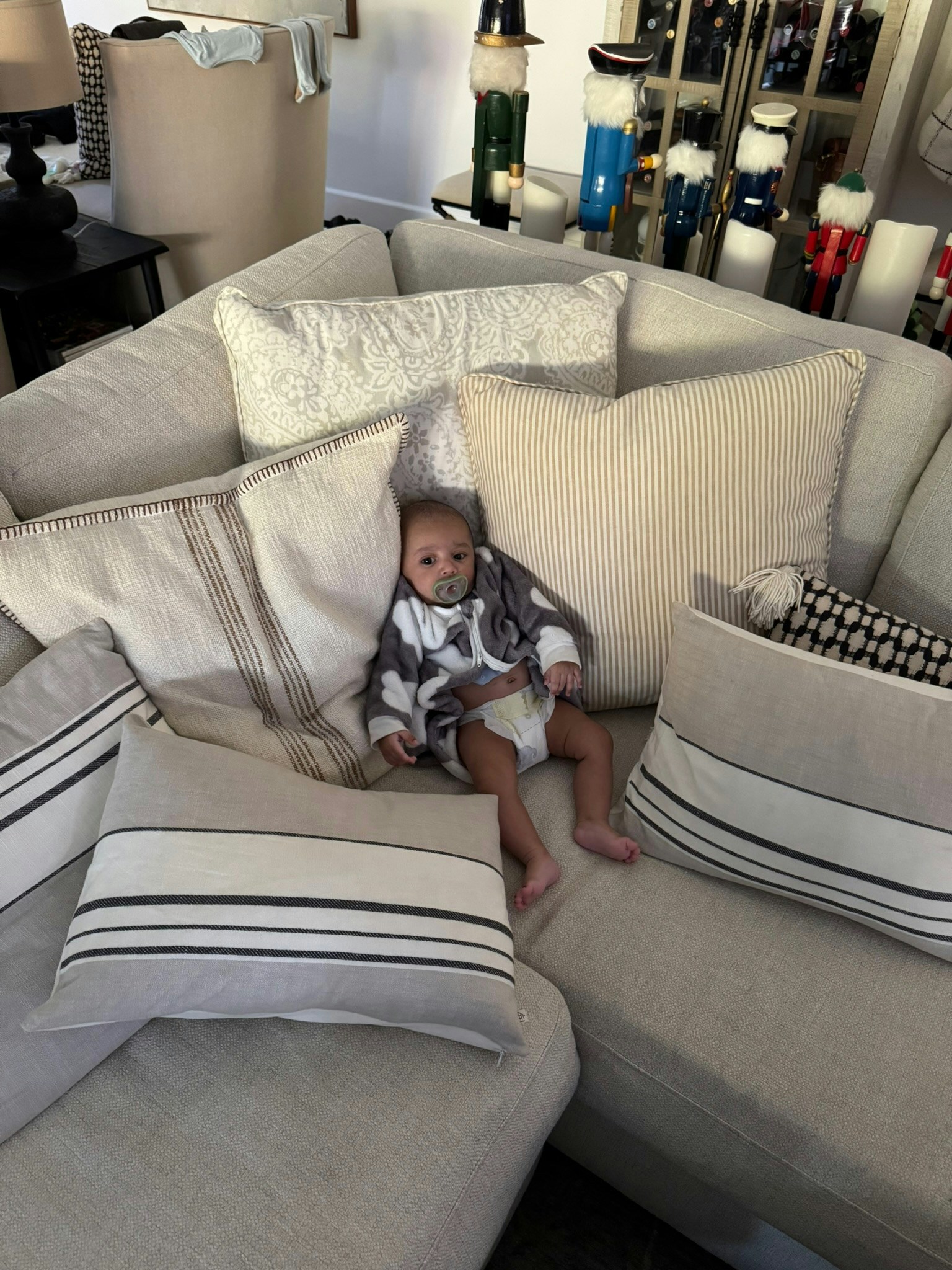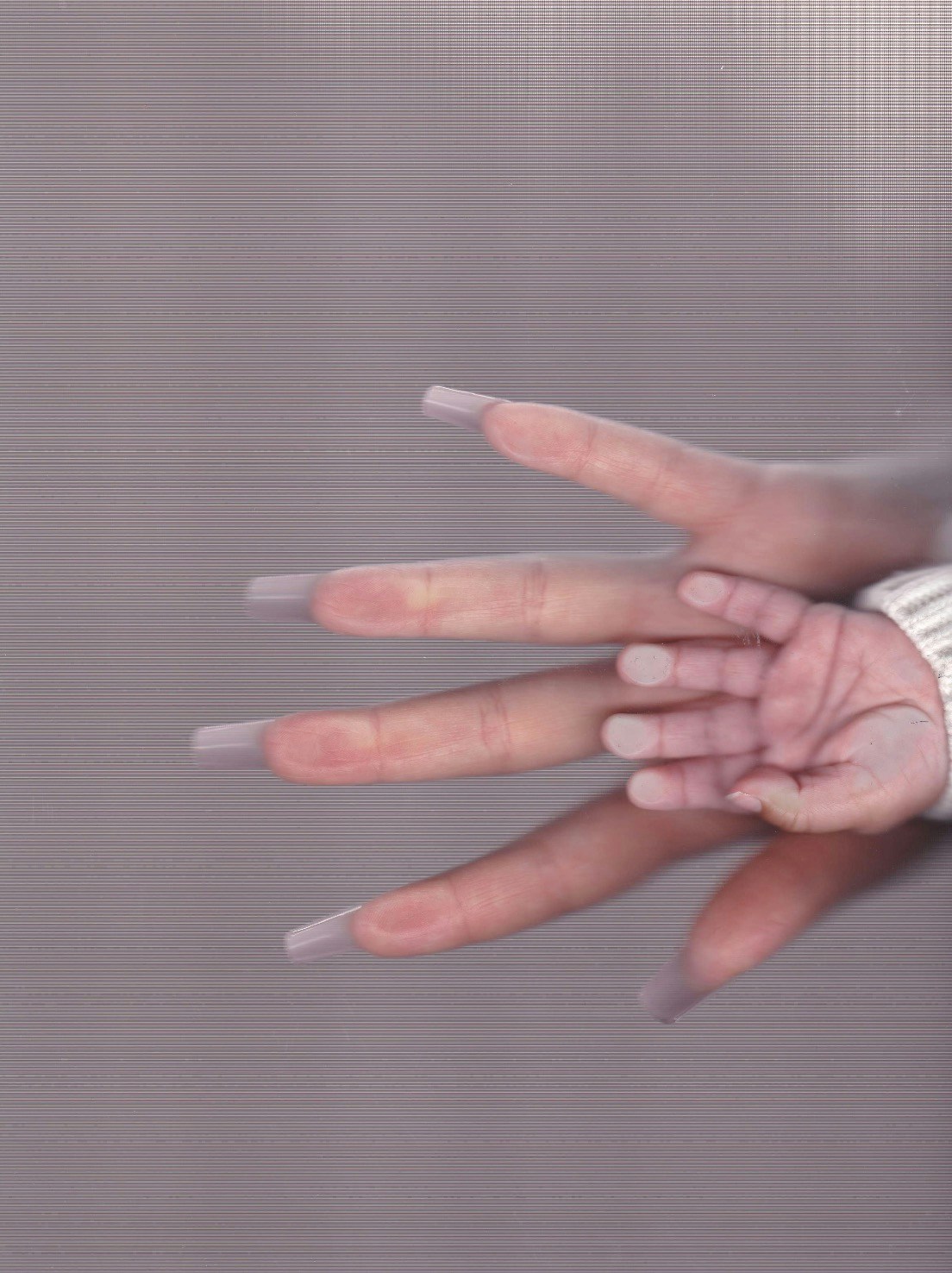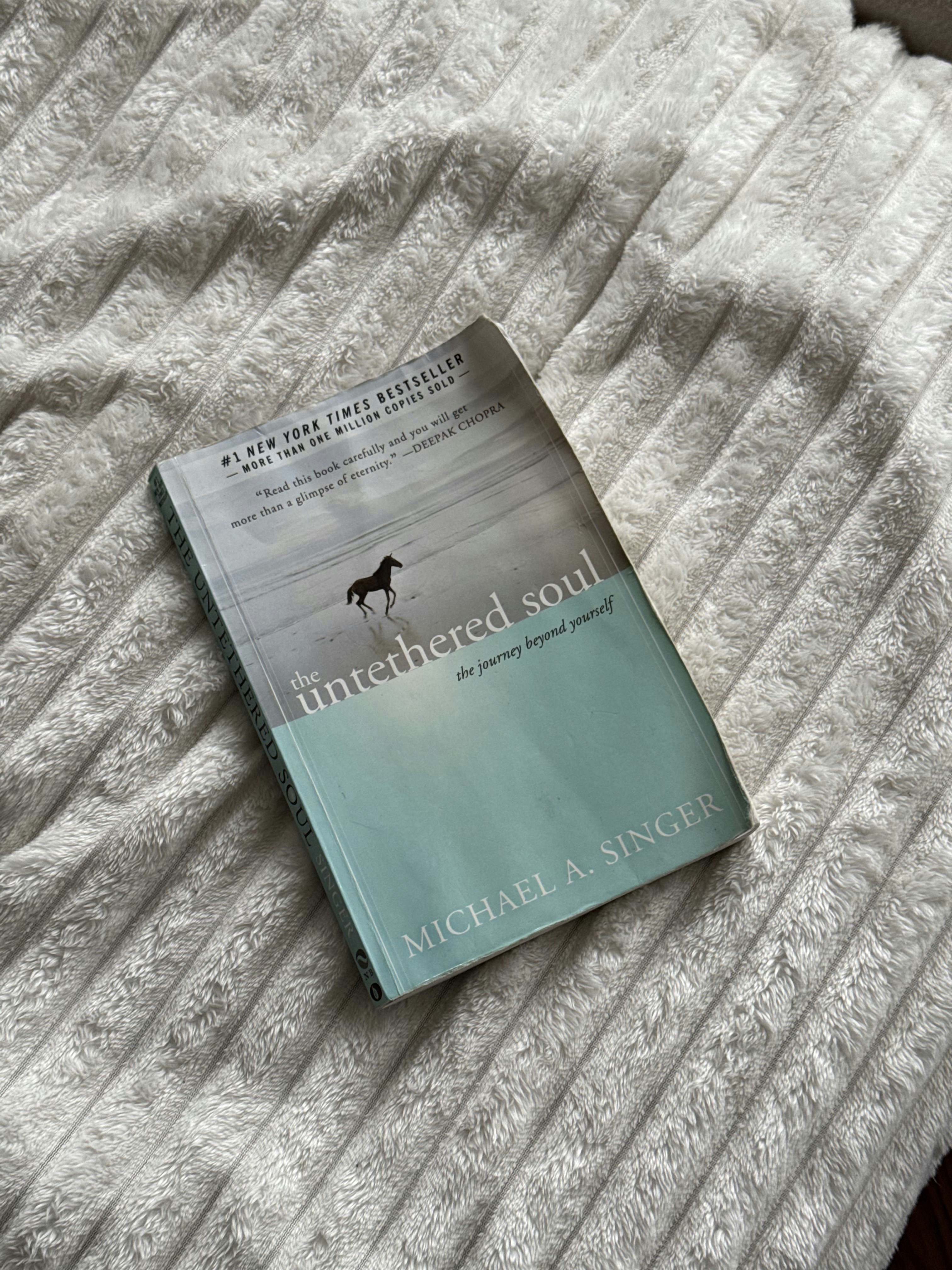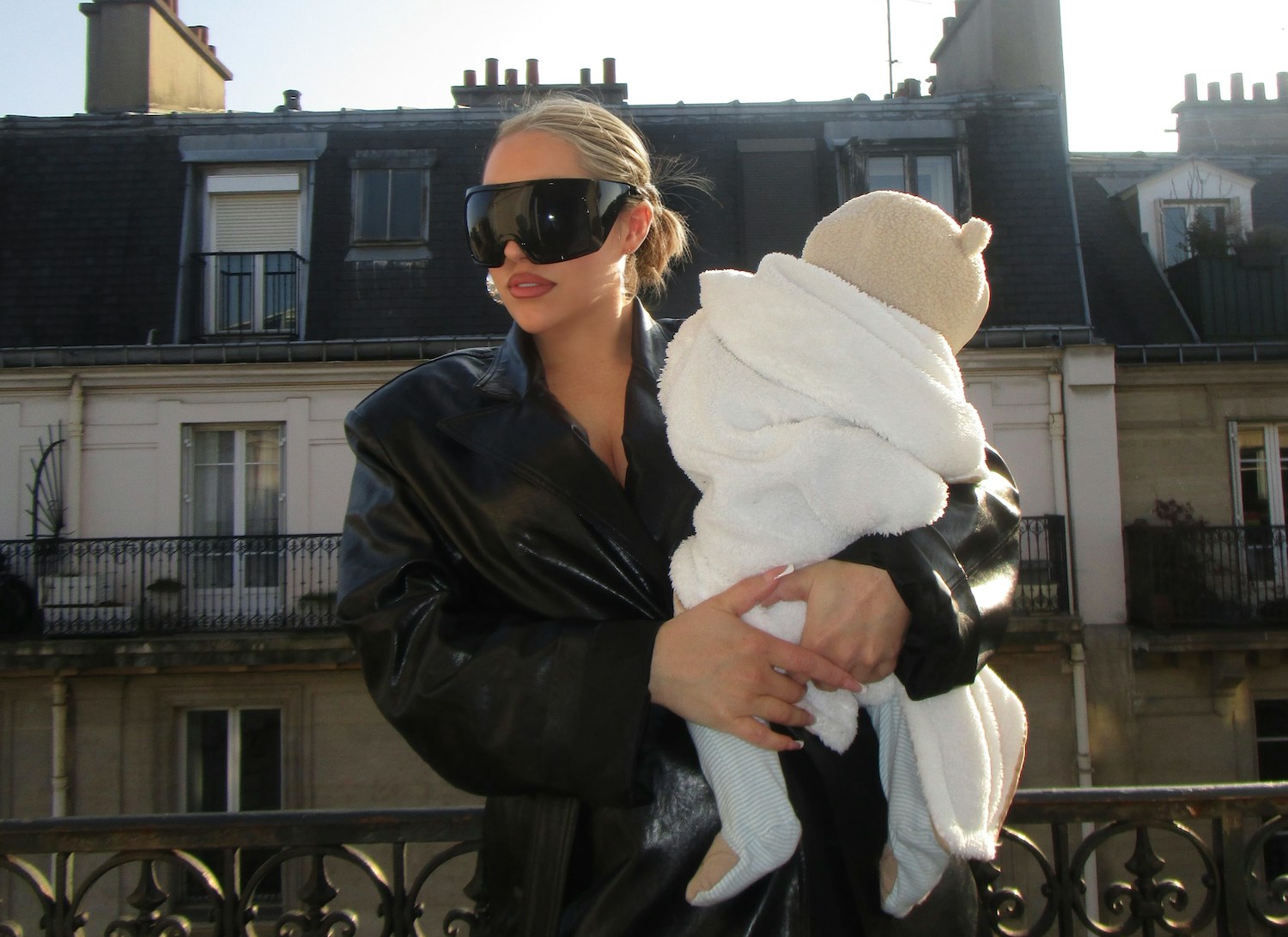
Getting Sticky With Madison Sowers
Words by AnaMaria Glavan, Photos by Sarah Jun Ashford-Brown
A note from Madison
My name is Madison, but everyone knows me as Mad Bad Ting. I adopted that name when I was living in London in my early twenties, finding myself, building my fashion brand Très Rasché and becoming a DJ. I’m 32 now, so it’s been about a decade of building this identity. I’m American with dual U.S.-Italian citizenship, and I’ve been living in France since 2019. Before that, I was in Los Angeles from age 17 to 27. I was born in Scottsdale, Arizona.
Since we’re all moms here, I want to be honest about my postpartum experience. It’s been incredibly difficult—not because of my baby, who is truly wonderful—but because I’ve found myself navigating early motherhood almost entirely alone, in a foreign country, without family nearby for support.
The past couple of years have brought intense challenges, including a late-term pregnancy loss where I delivered a stillborn baby, and many other deeply painful events that I’m still processing. What I’ve learned is this: being a mom to my incredible little one isn’t the hard part. The hard part is everything else. Managing medical systems, rebuilding my identity, balancing career pressure, facing bounce-back culture, unrealistic expectations of mothers, and carrying the emotional and physical load that so often falls solely on us.
It often feels like the world wasn’t built for mothers. It is as if motherhood was squeezed into a system that was never designed to hold it—let alone hold all the other parts of us too.
But through it all, one truth has become clear: support for mothers is not optional, it’s essential. And yet it’s still out of reach for so many. If sharing my story helps illuminate what so many women are quietly carrying, I’m committed to using my voice to help shift that reality.
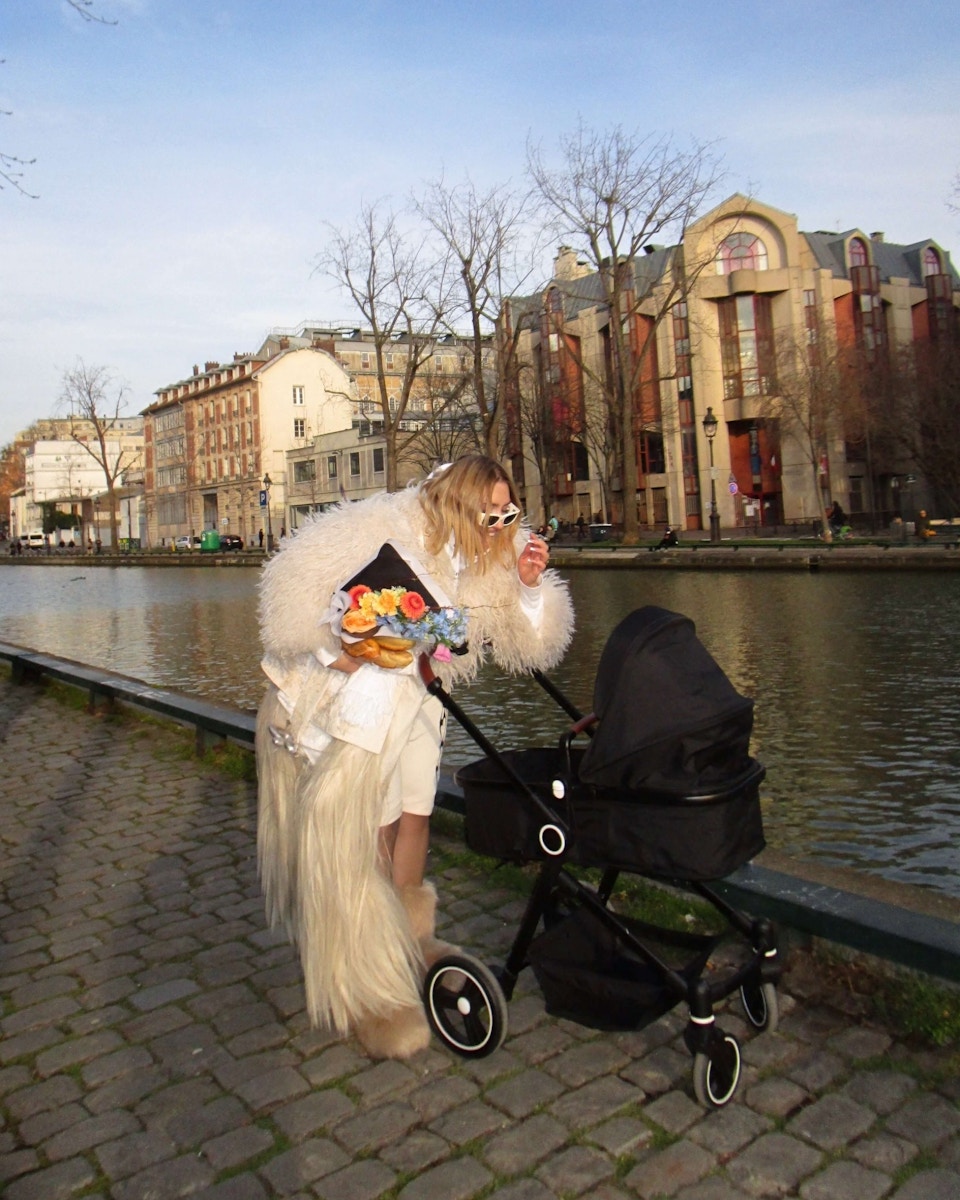


"Being a mom to my incredible little one isn’t the hard part. The hard part is everything else. Managing medical systems, rebuilding my identity, balancing career pressure, facing bounce-back culture, unrealistic expectations of mothers, and carrying the emotional and physical load that so often falls solely on us."
What I Gave Up in Order to Be Loved
I was deeply hesitant about motherhood for most of my life. It felt unfair, limiting—even degrading. I didn’t want to be a mom, and I certainly didn’t want to be a wife. The female experience, as I had seen it, was marked by sacrifice and quiet suffering. I was raised mostly by my father, and I watched my mother navigate a painful divorce with very little support. I didn’t grow up witnessing a woman “have it all”—I saw her survive, and it left a mark. I know many others share this story.
I met my former partner shortly after the COVID lockdowns. He had modeled for my brand, and we quickly became close. At the time, I was in full momentum—focused on excellence, building a business from scratch, finding identity through my work. He was the first person to challenge that. He told me that life wasn’t meant to be lived at that pace. That no one should have to be so independent. That love was about softening, slowing down.
At the time, I believed him. Yet before him, I didn’t see myself as a workaholic—I saw myself as a woman who had built something extraordinary. I loved my work. It gave me a sense of freedom and self-worth. But what followed is something many women experience: I slowly gave up my brand, my career, and my independence because I fell in love with someone whose life, in hindsight, was not as steady as mine. I believed in the future we envisioned. I held onto promises that were likely made with love, but that ultimately couldn’t be upheld. I placed my faith in potential instead of reality.
And by the time things started to fall apart, I had already given so much—through two pregnancies, one ending in stillbirth, and another that brought me to motherhood alone. My body, my energy, my ambition—I was depleted. And the support I had expected never materialized.
So many women give up everything they’ve built in the name of love and motherhood. But why is that sacrifice so often asked—if not expected—of us? Why is it women who must choose between love and selfhood, between motherhood and ambition, when the cost is so rarely equal?
I slowed down. I let go. I handed over the reins in the name of love. But love, I’ve come to realize, should not require you to disappear – and nor should motherhood. And when it all unraveled—when I found myself alone, holding a newborn and trying to piece my life back together—I finally saw that the problem had never been me working too much. It was that I had needed more support than I was ever truly offered.
This story is not unique. We see it again and again. A woman becomes someone. Builds something. Then motherhood arrives—and suddenly, she is expected to sacrifice it all, often without question. Meanwhile, many men continue forward largely unchanged. Studies even show that men often earn more and advance faster after becoming fathers, while mothers face the opposite. And far too often, the very person who once promised to protect & provide for her through pregnancy becomes the person she must now protect herself from.
So did I give up everything for love? Or did I give it up because I believed in an outdated vision, that so many women are sold, that couldn’t sustain me? Can it sustain any women in 2025? I now believe that, with a stable and emotionally secure partner, it could have been different. Maybe I would’ve been supported—not erased.
"So many women give up everything they’ve built in the name of love and motherhood. But why is that sacrifice so often asked—if not expected—of us? Why is it women who must choose between love and selfhood, between motherhood and ambition, when the cost is so rarely equal?"

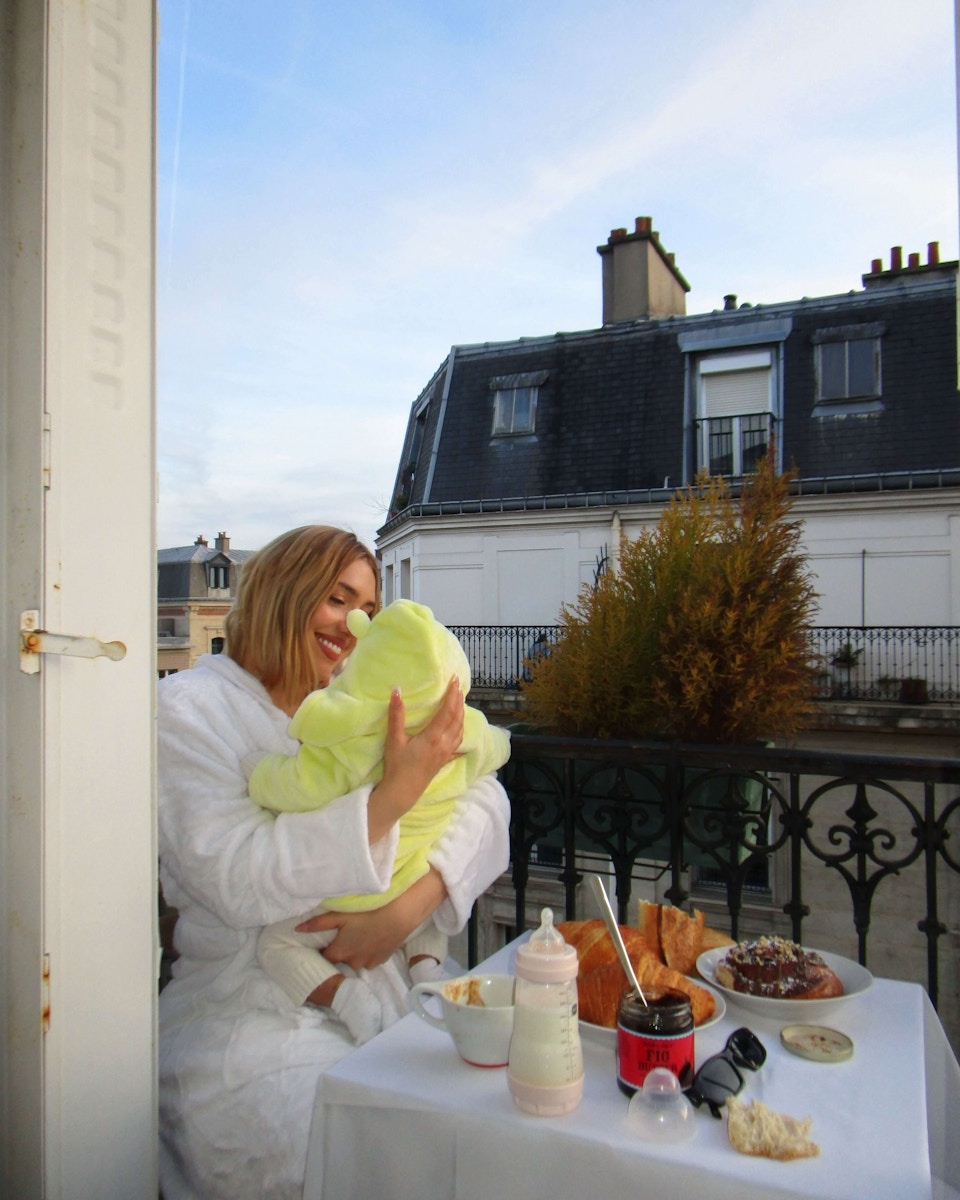
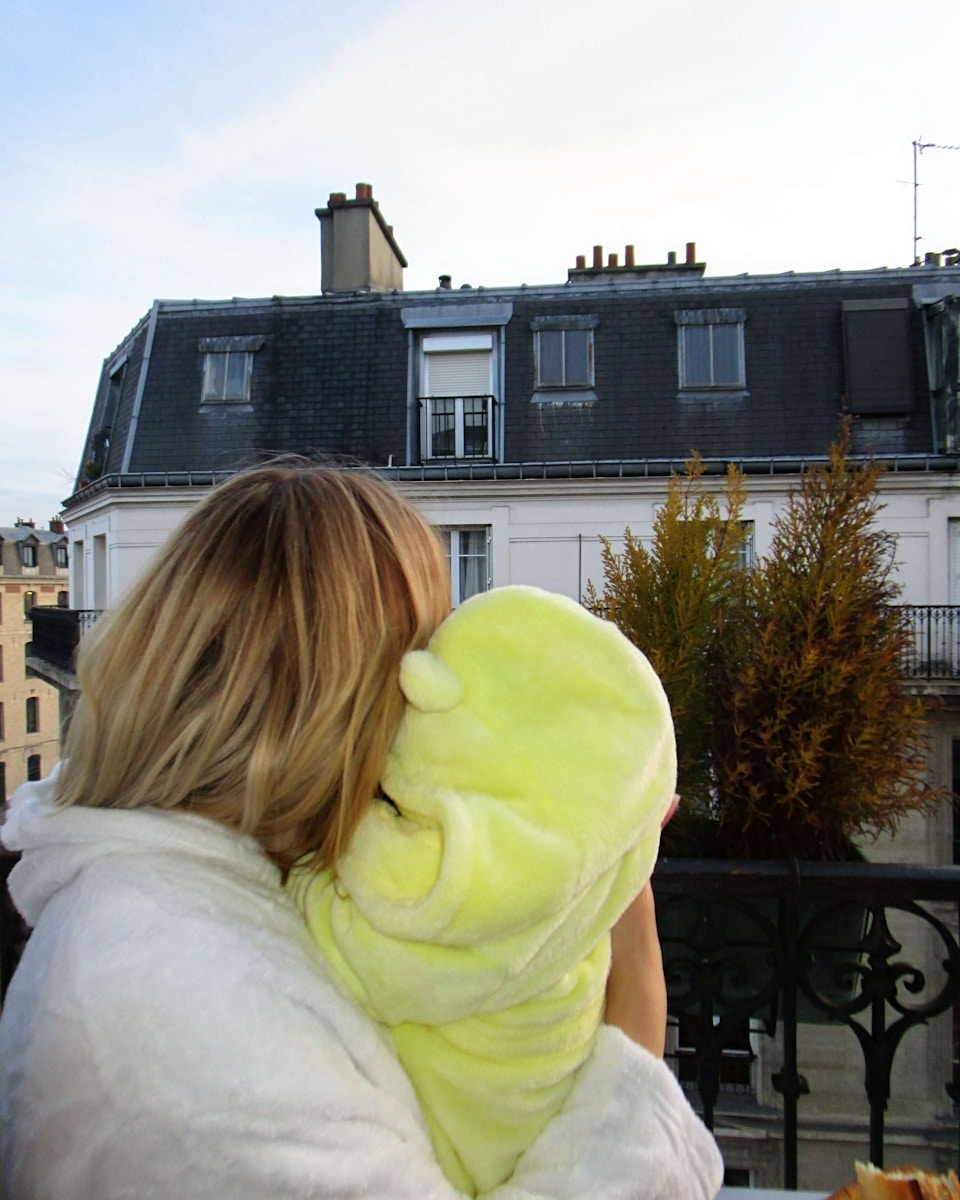
An eye-opening perspective shift
My ex-partner and I had a deep connection from the very beginning. He told me early on that he had felt we were meant to be together, that he told his family if he ever got a chance to date me he would marry me. He came from a big family and had always envisioned building one of his own. Our relationship quickly became serious and deeply loving. I fell for him in a way I never had before. We could talk for hours, and for the first time in my life, I found myself wanting the things I’d once rejected—marriage, children, nurturing a home.
Saying yes to his proposal felt natural. It felt like the next chapter of the life we were building together. When we found out we were expecting, I was overjoyed (and of course scared). I had spent so much of my life being skeptical about motherhood, but that pregnancy changed everything for me.
It awakened something ancient and powerful inside me. Suddenly I understood femininity in a new light—not as weakness, but as strength. I began to understand why women are spoken of as divine, as sacred. Pregnancy revealed how profoundly intuitive and transformative the female body is.

"Pregnancy showed me just how deeply we expect women to keep giving even when they are completely depleted. The truth is: we are taught that love means pouring ourselves into others. But during pregnancy and early motherhood, there is only so much to give. You need support. You need someone who can hold you while you hold life."

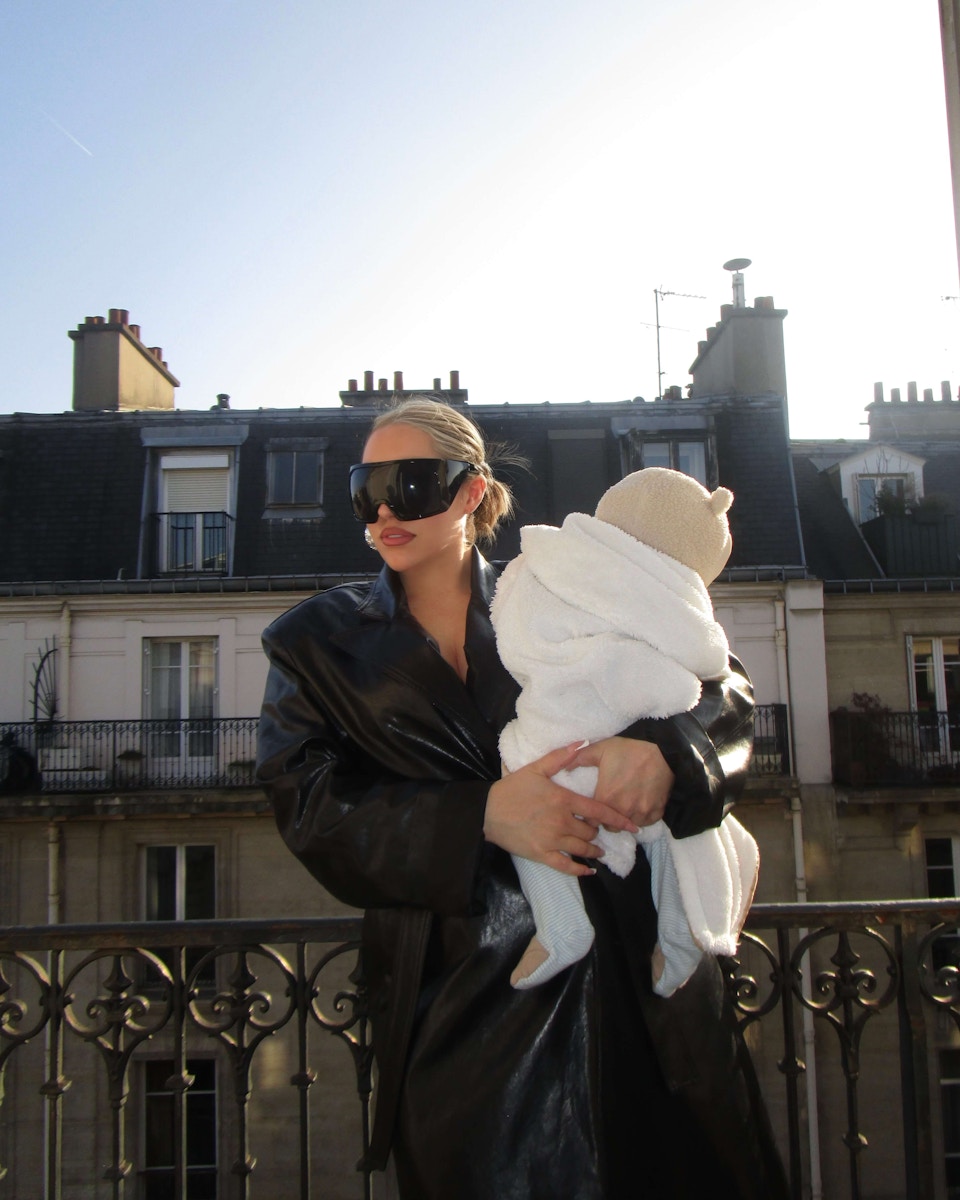

But it also revealed how vulnerable it makes you. Not just physically, but emotionally, socially, spiritually. And that vulnerability deserves to be protected, not dismissed. So often we look down on the hormonal changes and vulnerabilities that woman experience in pregnancy as liabilities (or annoying) but the truth is that without them a woman would not be able to create or take care of a vulnerable baby.
Pregnancy showed me just how deeply we expect women to keep giving even when they are completely depleted. The truth is: we are taught that love means pouring ourselves into others. But during pregnancy and early motherhood, there is only so much to give. You need support. You need someone who can hold you while you hold life.
I now see how important it is to enter motherhood with a partner who is secure, stable, and emotionally grounded. Otherwise, the imbalance can cost you everything. And for many women, myself included, it often does.
Grief looks different on everyone
My journey into motherhood didn’t start the way I imagined. My first pregnancy ended in the most devastating way, through stillbirth, and what followed was a season of grief I never could’ve prepared for.
It was July. A hot afternoon in Paris. I was carrying a bag of fruit, walking home from the Marché Enfants Rouges in the Marais. When I got home, I suddenly didn’t feel right. I felt sick—off. I called and emailed the hospital, explaining my symptoms, but they told me it sounded like typical pregnancy side effects. Days went by. I got worse. I went to the hospital again, still feeling something was wrong. That’s when they told me: there was no heartbeat.
My baby was gone.
They had to induce labor. I gave birth to a stillborn baby at 25 weeks. In France, that’s considered a legal human life. And she was a human. Her name is Mishiko.
We had to register her birth. We had to hold a funeral. And though it was heartbreaking, I’m so grateful we honored her that way. We had a small ceremony. The next morning, we visited her. We spent time with her. They gave us a photo. They took her footprints. It was one of the hardest and most sacred experiences of my life.
Before Mishiko, the only loss I’d experienced deeply was my grandfather’s. He passed during COVID, but he’d lived a long, full life. Mishiko’s death was nothing like that. It was sudden. Shocking. There was no preparation. Just a quiet void and a tidal wave of guilt, even though I knew logically I had done nothing wrong.
Grief after stillbirth is layered with silence, shame, and confusion.
I’ve always been an optimistic person. I’ve never struggled with mental health. I’d never even touched depression or anxiety. But after losing Mishiko, I was diagnosed with acute situational depression and anxiety. In France, they call it “aigu” because it comes from trauma. Mine lasted about six months.
My partner’s grief lasted longer, but it looked very different. He shut down. He went inward. And while I can’t speak for him, I could see that he didn’t feel like he had permission to be vulnerable. I think a lot of men don’t. He told me this was harder for me than for him. He said he didn’t know how to talk about it. We did therapy, together and separately, but we grieved on two completely different planets.
I, on the other hand, had no choice but to talk. For me, healing only comes by moving through. Not around. Not over. Through. I felt shame, guilt, rage, disbelief—but I let myself feel it. I spoke about it constantly. To friends, to women online, to strangers in coffee shops, to anyone who would listen. I couldn’t hide from it, because hiding would have turned into lifelong self-loathing.
And I want to acknowledge that this isn’t easy. There’s still a painful taboo around pregnancy loss. It can feel like you’re not allowed to talk about it, like your grief should be quiet or invisible. I know that feeling. But I encourage you to talk about it anyway. Speak it aloud. Say your baby’s name. Share your story. Because silence protects shame, and your grief deserves light, not a shadowed corner. There is nothing more freeing than owning all of yourself, even the messy or dark parts.
Grief moves in waves: denial, devastation, rage. And while rage doesn’t feel good, it’s still forward movement. Eventually, somewhere between the heartbreak and the anger, you find yourself on the shores of acceptance. But you have to wade through it all to get there.
And here’s something else I’ve come to believe:
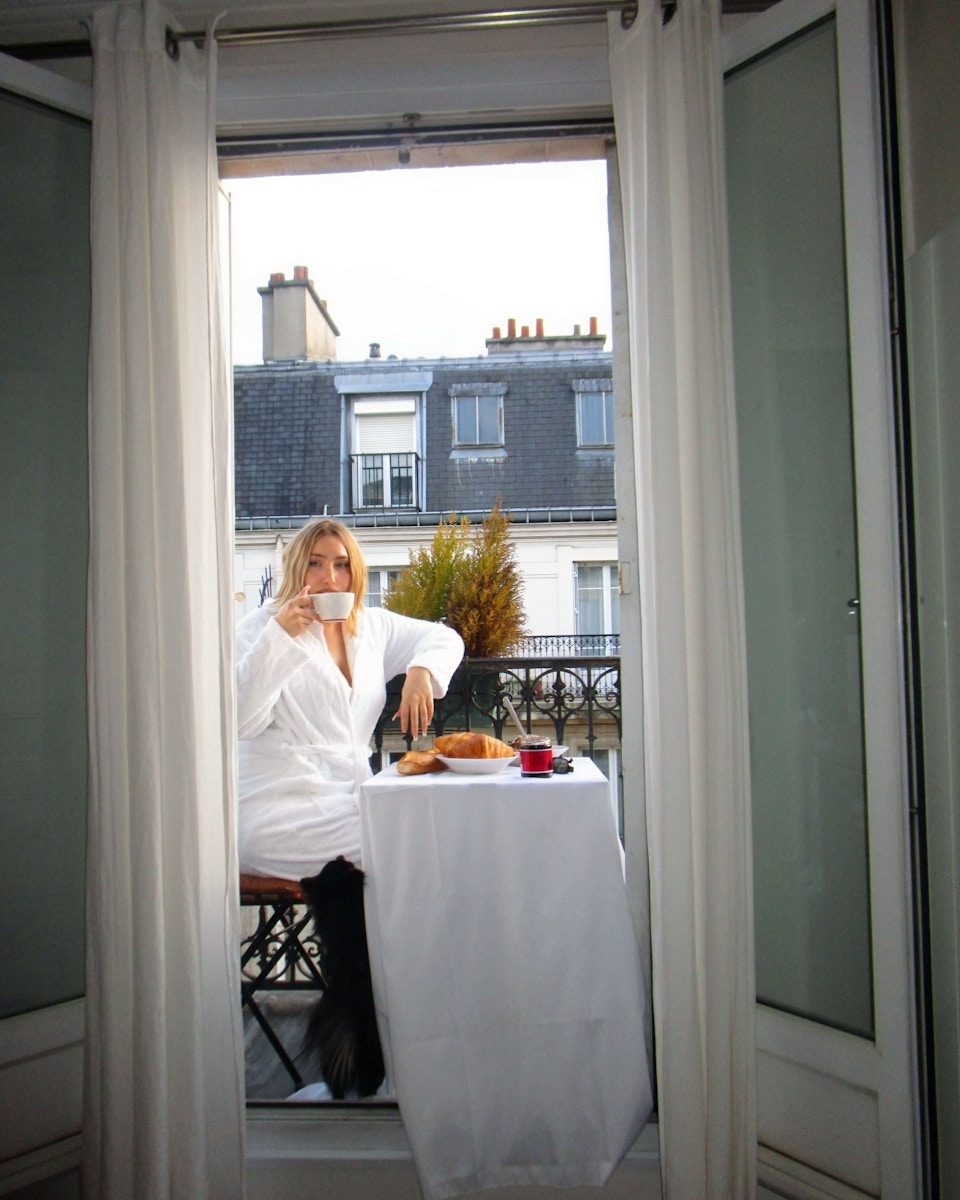
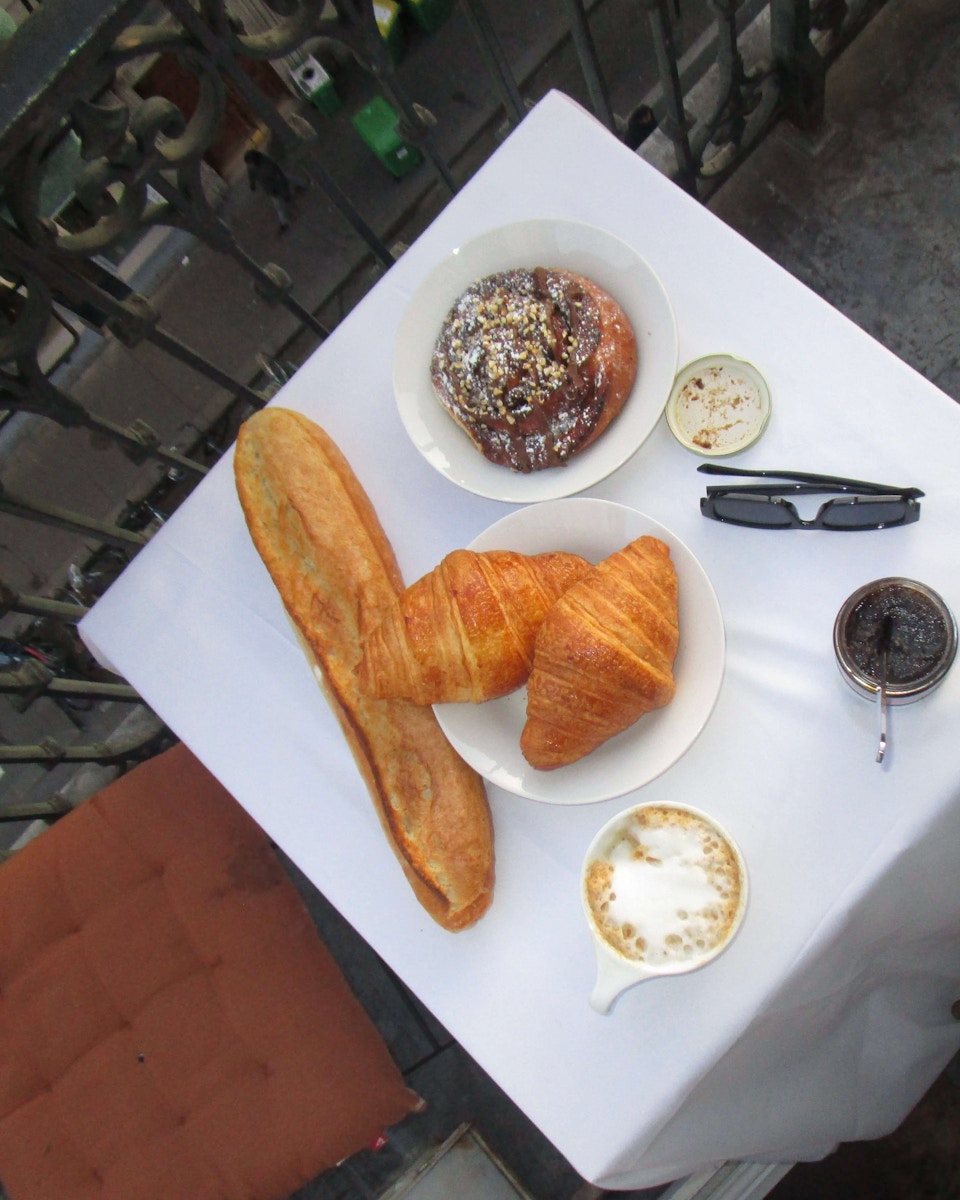
Fathers need space to grieve, too
Their experience is different, yes—but it is real. And far too often, men are denied access to their own emotional worlds. Society tells them they’re not allowed to break down, not allowed to feel, not allowed to need. And because of that, many men never learn how to process emotions, how to express them, or how to have compassion for themselves.
Meanwhile, women, because we are seen as emotional, are constantly made to navigate our feelings, our hormones, our intuition. We develop emotional intelligence out of necessity. We learn how to cope. And that’s where I believe many fathers suffer: they are expected to step into the biggest role of their lives without the emotional tools to hold it.
Becoming a parent changes everything. It’s massive. It’s disorienting. It’s spiritual. And men deserve the right to feel it too. To name their experience. To be held in their grief. To heal.
A total mind fuck
We found out on Valentine’s Day that I was pregnant again. We weren’t actively trying. We were just trying to heal. But in my heart, I think I wanted to be pregnant again. I now wanted to be a mother after Mishiko. When the tests said yes, I was overjoyed. Despite the loss and trauma, I felt like I had done enough emotional work to begin again.
We had conceived in Japan during the holidays. That time abroad helped me grieve privately. I wasn’t focused on my partner much—I was in survival mode. I thought that was normal in a long-term relationship. But I now realize I had overlooked signs that something was deeply wrong.
Once we returned to Paris and discovered the pregnancy, he was preparing to leave again for work. We had two weeks together, but he seemed sick: sleeping long hours, barely present, confused. I expressed concern and suggested we go to the hospital. He told me I was overreacting. I ended up apologizing, internalizing it as pregnancy hormones. He left for Japan. But in my gut, I knew something wasn’t right.
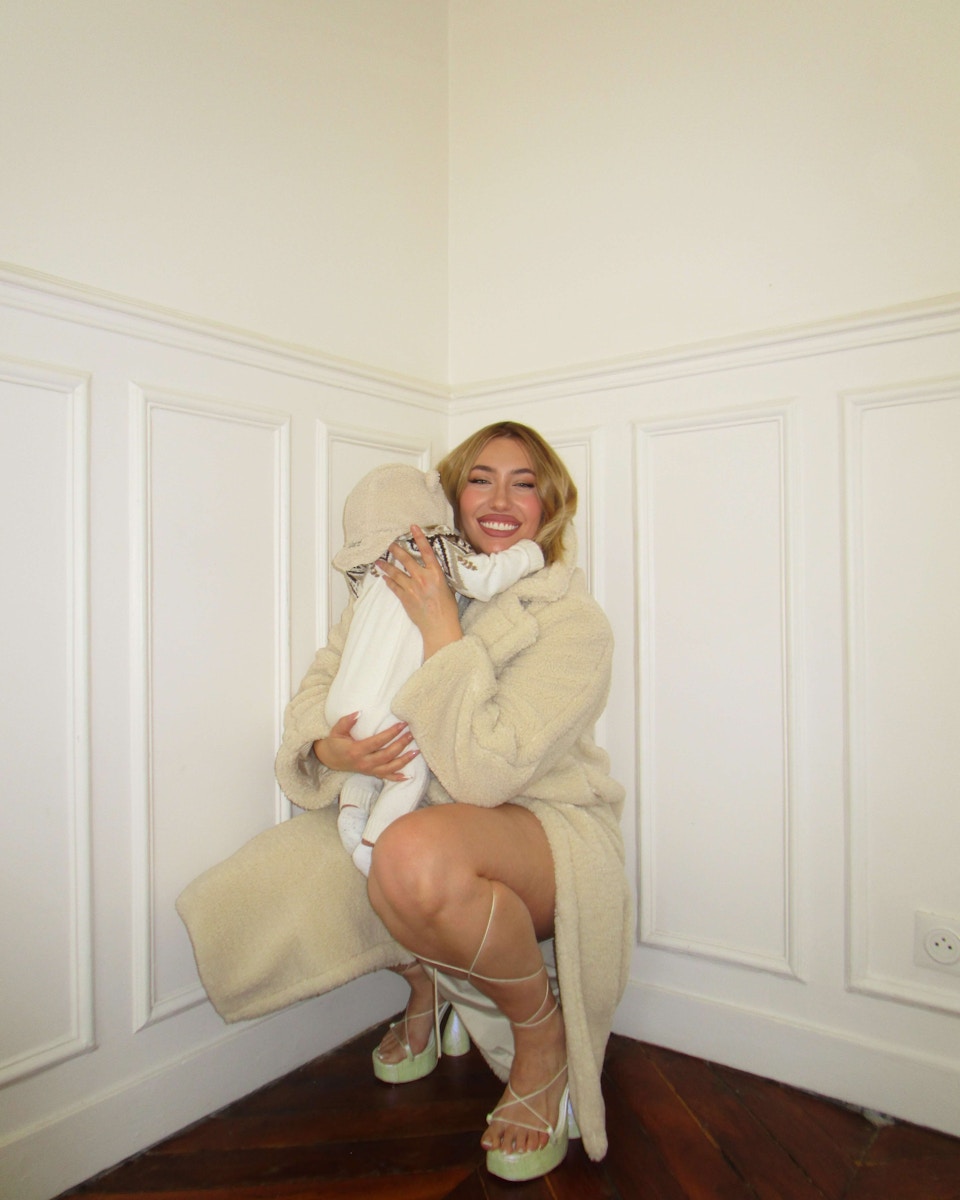
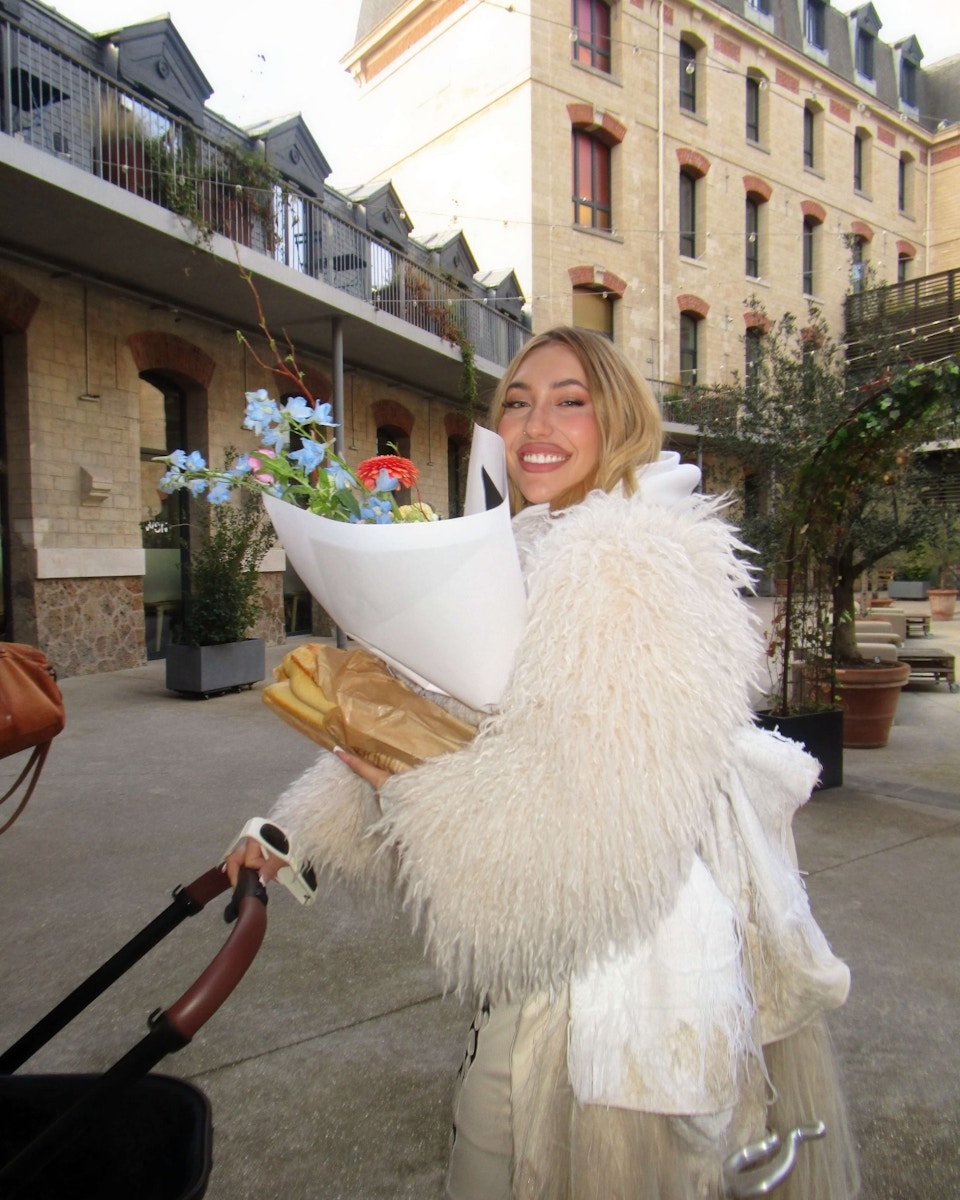
Denial can become a shield
Addiction is complicated and devastating. When you love someone who’s struggling, you convince yourself it’s not that bad. You try to fix it. You carry the weight of their pain alongside your own.
But addiction doesn’t just consume the person, it consumes the relationship. It alters the dynamics. You begin to engage with the addiction instead of the person you love.
I won’t go into too many details out of respect, but I will say this: addiction is an illness. It often masks deeper emotional wounds. And only the person experiencing it can decide to heal. No amount of love or effort can do it for them.
If anyone reading this is going through something similar, especially while pregnant, I want you to hear me clearly: you are allowed to protect your peace. You are allowed to walk away. You do not have to carry everything. Prioritize your safety and your child’s. You can love someone and still say, This isn’t healthy for me.
During my first trimester, I spent many hours in therapy at the hospital where I had delivered Mishiko, trying to decide if I could move forward with the pregnancy. Not because I didn’t want my child—but because I had to face the very real possibility of doing it alone. After many discussions, I was told, “You will regret not keeping this baby. It’s clear you want to be a mother.” I moved forward in hope, even though a small voice in me remained scared.

"If anyone reading this is going through something similar: you are allowed to protect your peace. You are allowed to walk away. You do not have to carry everything. Prioritize your safety and your child’s. You can love someone and still say, "This isn’t healthy for me.""
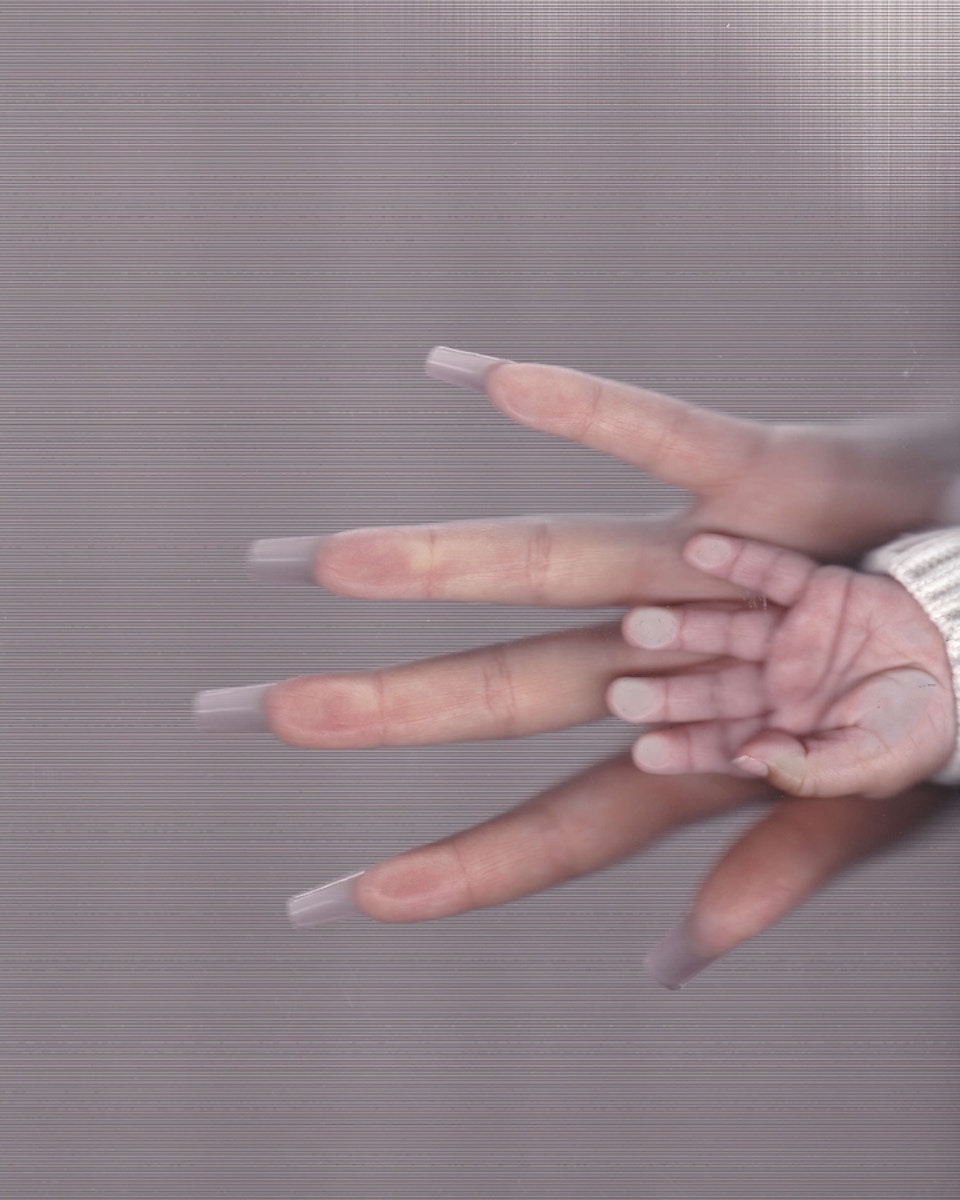
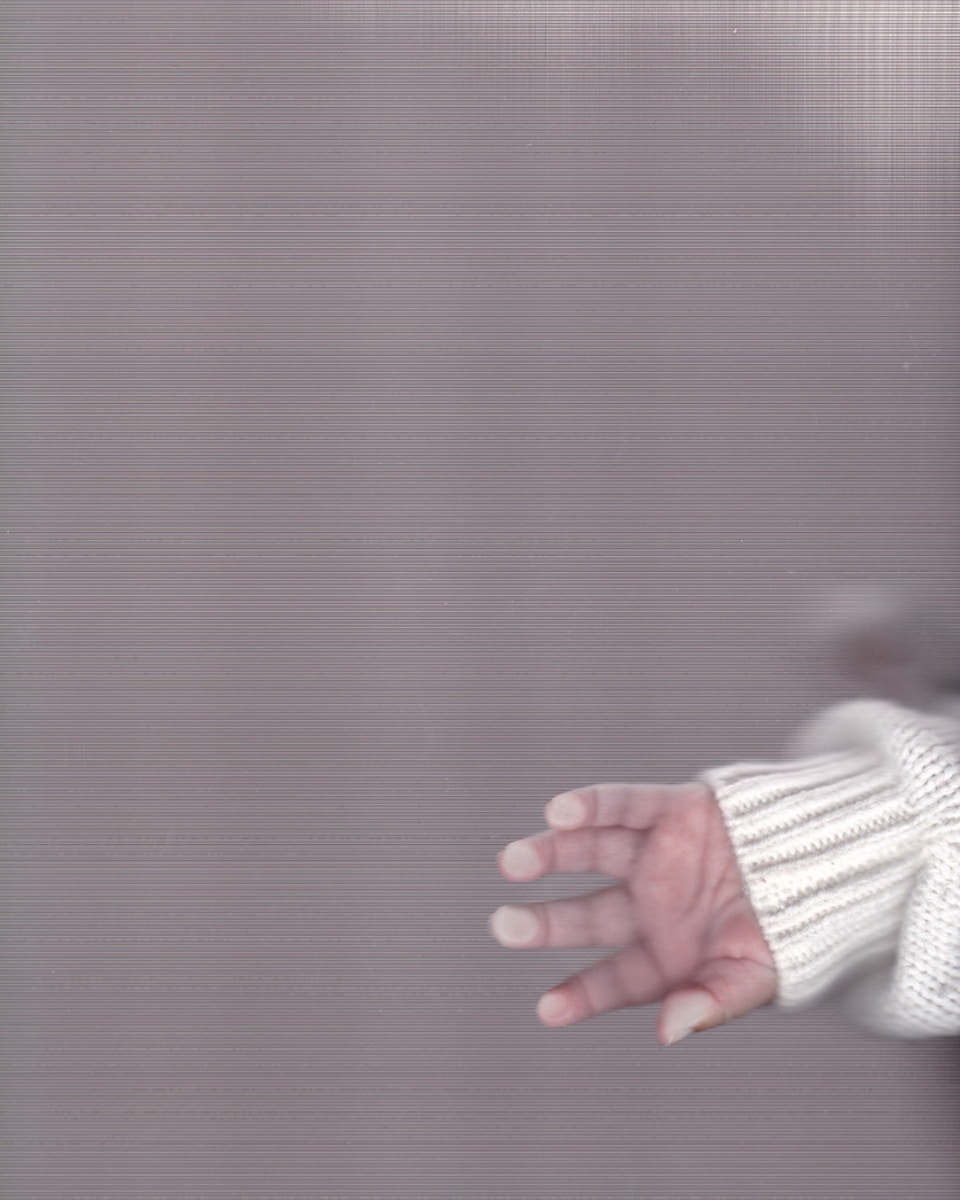
What I used to believe about single moms
I need to be honest about something: I used to judge single mothers. I had absorbed all the toxic stereotypes. That they were difficult, or dramatic, or somehow to blame. I internalized those beliefs so deeply that it was part of why I never wanted kids. I was terrified of ending up like that.
But I get it now.
Being a single mom is not a failure—it is an act of strength. It is a woman saying, I will do whatever it takes to give my child a better life.
I look back and wish my own mom had left my dad sooner. Children absorb everything. If a parent is yelling or unstable, they think it’s their fault. Or worse—they normalize it and repeat those patterns in adulthood.
One thing my mom told me that always stuck with me is this: No matter what happens, you’re always a single mother. Even with a partner. Even with help. The majority of the work will always fall on you. And she’s right. So if you’re doing the work anyway, why stay in something unsafe just to avoid the label?
If you’re considering motherhood, ask yourself: Do I want this? Can I do it alone, if I have to? If the answer is yes, go for it. But go in clear-eyed. Because motherhood will change you. And doing it without support is incredibly hard—but it’s also transformative.

"I need to be honest about something: I used to judge single mothers. I had absorbed all the toxic stereotypes. That they were difficult, or dramatic, or somehow to blame. I internalized those beliefs so deeply that it was part of why I never wanted kids. But I get it now."
What comes next?
Making a baby came from an overwhelming river of love I had for my partner. But no one can predict how things will unfold. People change. Relationships evolve, especially under the weight of pregnancy and new parenthood.
I had to make a painful decision to prioritize stability for my child. It broke my heart, but it was necessary. If something, or someone, didn’t work out, it’s because something better is waiting. I truly believe that now.
So if you’re in a hard place: take it one day at a time. Ask for help. Let a village form around you. And remember—you will find joy again. You will find love again. And most importantly, you will find yourself again. A version of you that’s stronger and more powerful than you ever imagined.
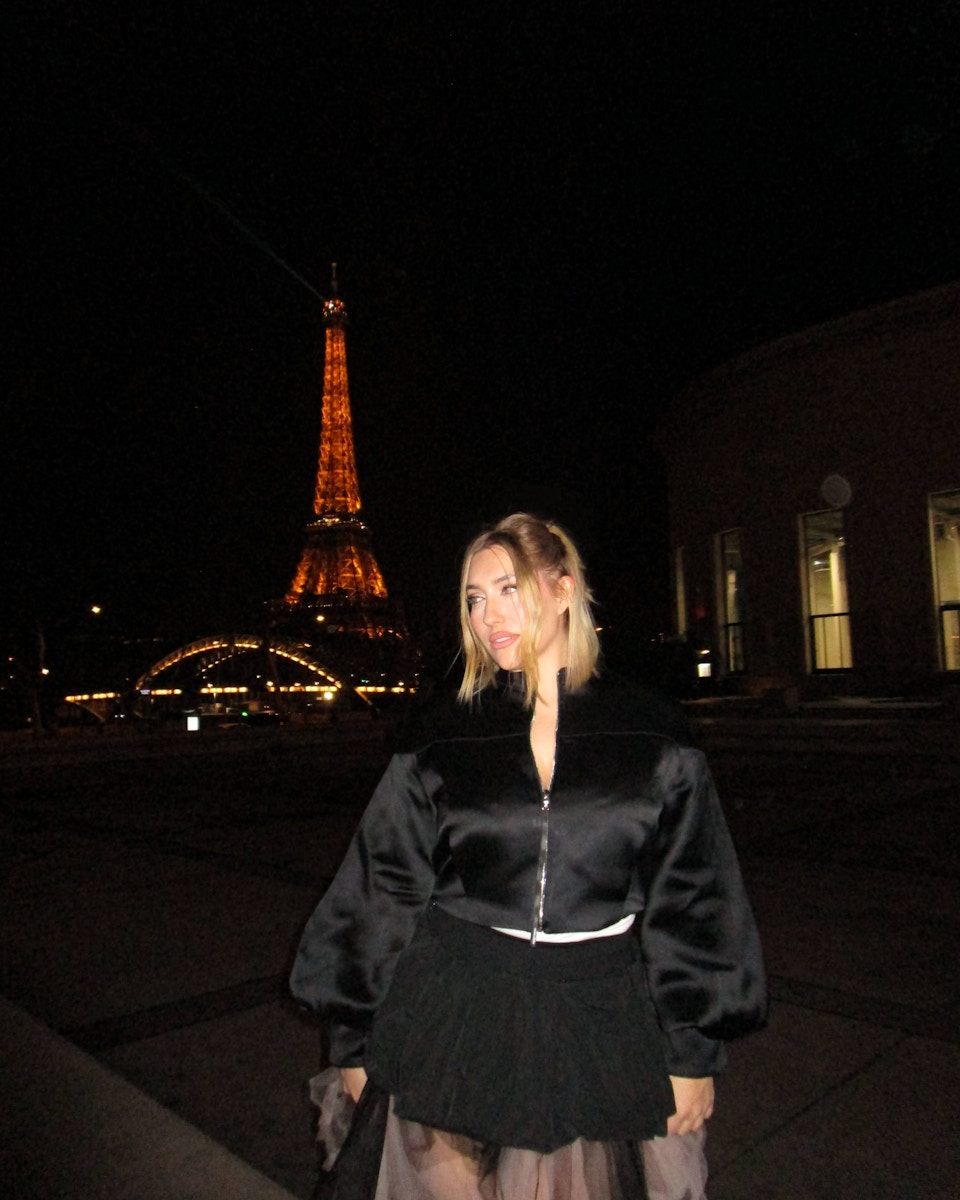
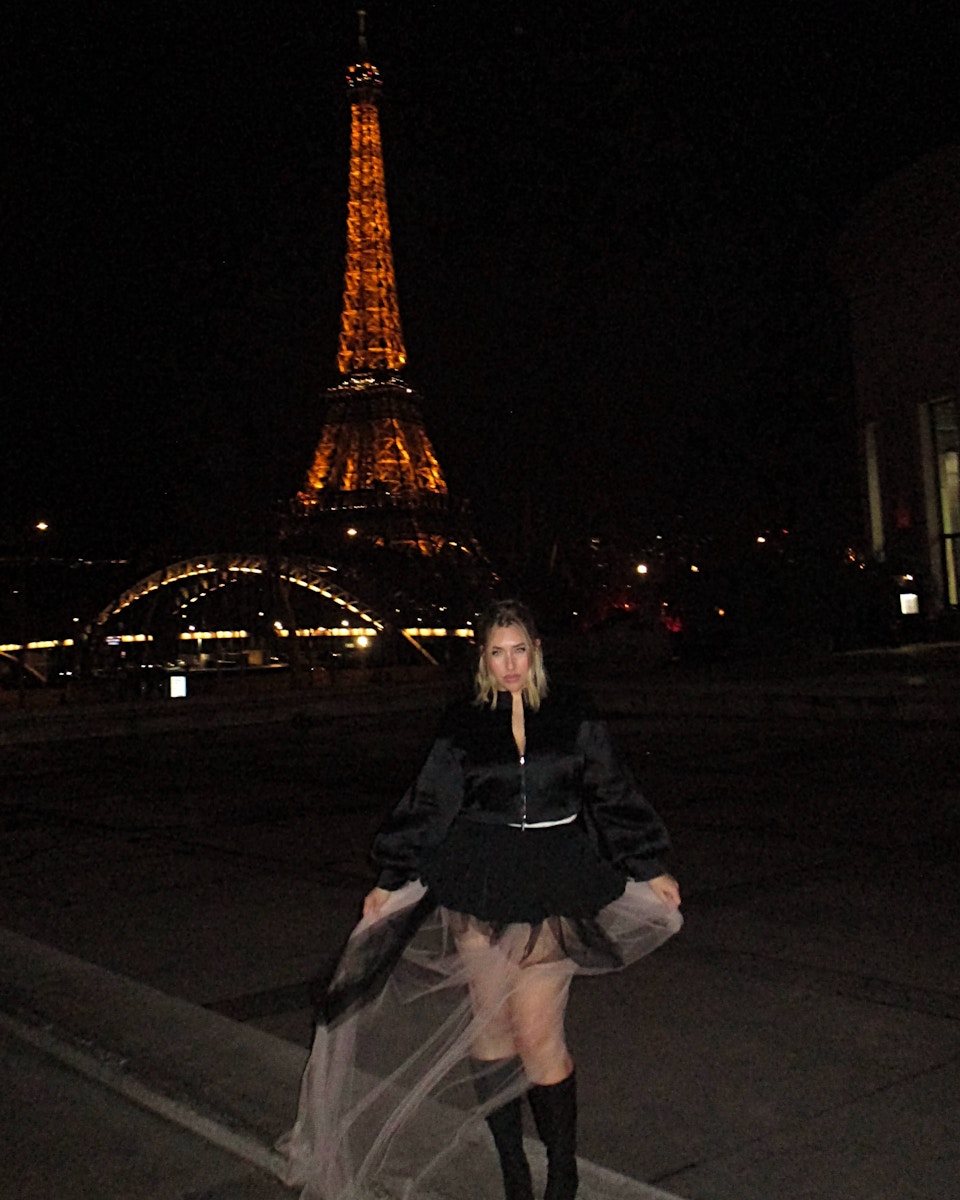
On not losing what you’ve built
I used to joke that I did everything I wanted by 30. I built a fashion brand, designed for Louis Vuitton, launched five sneaker collabs with Reebok, DJ’ed at Coachella, lived all over the world. I checked off everything on the bucket list. And then motherhood hit, and I lost almost everything I’d built.
Looking back, I realize it wasn’t my fault. The systems around me weren’t designed for motherhood—especially not single motherhood. There’s no space for it in how we structure work, ambition, or success. And we don’t tell women what it’s actually like.
So now, at six months postpartum, I feel like I’m starting from scratch. But there’s a silver lining in that. I get to rebuild. Smarter. With purpose.
I want to be present for my child. I want to build something that helps other women. I still love art, fashion, music. I don’t know what’s next, but I know it’s going to be powerful.
"So now, at six months postpartum, I feel like I’m starting from scratch. But there’s a silver lining in that. I get to rebuild. Smarter. With purpose."

Motherhood in France is very different
In France, people care about the vulnerable. Human rights are deeply embedded in the culture. Healthcare, parental leave, and postpartum support are accessible and structured with care. It’s not perfect, but it is humane.
As a European citizen, my prenatal and postpartum care was 100% covered from six months onward. Even without insurance, a visit costs 25 euros. The difference is staggering when compared to the U.S.
After giving birth, I stayed in the hospital for 8 days due to complications. I was given round-the-clock care. When I went home, I was supported by a midwife, a pediatric nurse, and a therapist. All covered. That level of care changed everything.
In the U.S., those supports don’t exist, and if they do, they’re only for those who can afford them. That’s heartbreaking. Because all mothers deserve this.
A beautiful nightmare
This has been a beautiful nightmare. Beautiful because I’ve grown. Because I’ve never loved like this. Because I’ve never felt so strong. And a nightmare because no one prepares you for the weight of it all—the decisions, the fears, the identity loss, the solitude.
I had to walk away from someone I loved deeply. I had to rebuild in a foreign country, without family, while navigating legal systems, custody, and healing.
But through it all, Aïko is the light. The love. The reason I keep going. And women, myself included, are so much more powerful than we’ve ever been taught to believe.
